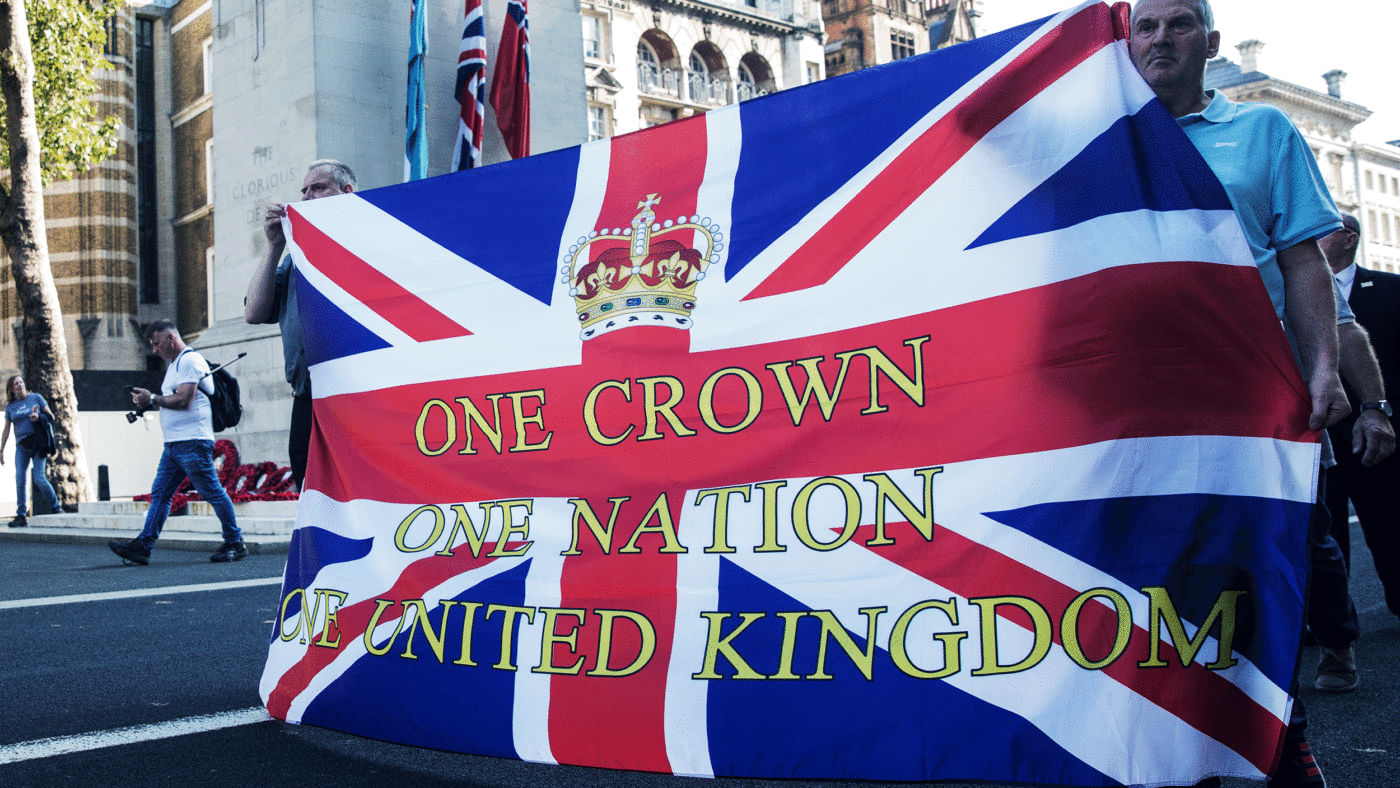In Northern Ireland, the political settlement that brought stability to the province is threatening to unravel, thanks to the Northern Ireland Protocol. Some influential politicians believe that the Belfast (Good Friday) Agreement, which is credited with bringing peace to Ulster, may now be effectively finished.
With an election fast approaching, the power-sharing executive collapsed last month when the DUP’s Paul Givan resigned from the first minister’s post. This week, the Appeal Court made it more difficult for his party to rejoin the devolved government after the poll takes place in May.
Ruling in a case against the protocol, a panel of three judges held that the ‘principle of consent’, which protects the province’s place in the United Kingdom if a majority of voters favours that outcome, does not prevent a trade border in the Irish Sea.
The judgement found that parts of the Act of Union, which guaranteed Northern Ireland would be on an ‘equal footing’ to the rest of the United Kingdom for trade, had been ‘subjugated’ by the protocol. One of the three judges, McCloskey LJ, said the sea border, ‘positions NI primarily within the EU internal market rather than that of the UK’ and perpetuates, ‘the application of a discrete and potentially evolving corpus of EU laws in NI’.
Nevertheless, the panel ruled that the principle of consent governs only the province’s formal constitutional position, which they claimed has not changed.
For unionists, this judgement implies that the Good Friday Agreement does not protect the substance of their position in the United Kingdom. In the Belfast News letter, the former Labour Minister, Baroness Hoey, who was a party to the case, wrote; ‘When it comes to NI’s place within the Union, you can change everything but the last thing. The last thing being simply the final formal handing over of sovereignty. If you had told me, or I suspect Lord Trimble, that the principle of consent was… merely symbolic… there is no way I would have ever supported the Belfast Agreement in the first place.’
Another litigant, the Traditional Unionist Voice leader and QC, Jim Allister, claimed the judgement proved that Northern Ireland’s place in the UK could be ‘salami sliced out of existence.’
On the same day that the court gave its ruling, Conservative ministers were forced to withdraw a statutory instrument that replaced the words ‘United Kingdom’ with ‘Great Britain’ in customs legislation.
Treasury officials claimed that the amendment was a formality that would enable trade to flow freely between Northern Ireland and the mainland. After unionists expressed alarm, the foreign secretary, Liz Truss, persuaded them to perform a U-turn. She said that the measure undermined her attempts to renegotiate the protocol with the EU.
That fiasco did little to reassure politicians in Northern Ireland that their Union with Great Britain was not being gradually unpicked.
These events are significant because unionists accepted the Belfast Agreement – which involved compromises like working with IRA terrorists in government – because the principle of consent provided them with a constitutional guarantee. So long as most people in the province supported Northern Ireland remaining part of the United Kingdom, then their place in the Union would be secure.
One of the key clauses in the agreement acknowledged, ‘The present wish of a majority of people in NI, freely exercised and legitimate, is to maintain the Union, and, accordingly,…(NI’s) status as part of the UK reflects and relies upon that wish.’
If that commitment meant anything at all, then the province’s voters had a right to take part in a national political decision like Brexit on the same basis as voters in Great Britain and have its outcome respected and applied equally in Northern Ireland.
The protocol destroyed that basic assumption. It effectively consigned the people of Northern Ireland to a second class form of British citizenship. They could be deprived of basic political rights taken for granted in the rest of the country.
Now, this court case confirms that key aspects of the Act of Union, which created the United Kingdom, have been demolished by the sea border arrangement. Northern Ireland is estranged from the UK’s economy and politics and the principle of consent provides no redress.
The DUP has been relatively quiet about these developments. When it collapsed the executive, it argued that political life in Ulster could not go on as normal, while the protocol separated Northern Ireland from the rest of the UK.
The power-sharing institutions in Northern Ireland were created by the Belfast Agreement. However now, according to the court, that deal does not protect the most fundamental aspects of the Union. In these circumstances, the DUP will struggle to convince its supporters that it should return to government in the foreseeable future.
If the province’s place in the UK’s internal market were restored, either by negotiation with the EU or unilateral action by Boris Johnson, then the mood may change. And the Appeal Court’s judgement is likely to be challenged in the Supreme Court, so the law lords may take a different view.
In the meantime, the Government will worry that an increasing number of pro-Union people will endorse the view of Baroness Hoey, who campaigned for the Good Friday deal alongside David Trimble. On Tuesday, she wrote, ‘No self-respecting unionist can ever again operate the institutions of the Belfast Agreement… It is finished.’
Click here to subscribe to our daily briefing – the best pieces from CapX and across the web.
CapX depends on the generosity of its readers. If you value what we do, please consider making a donation.


